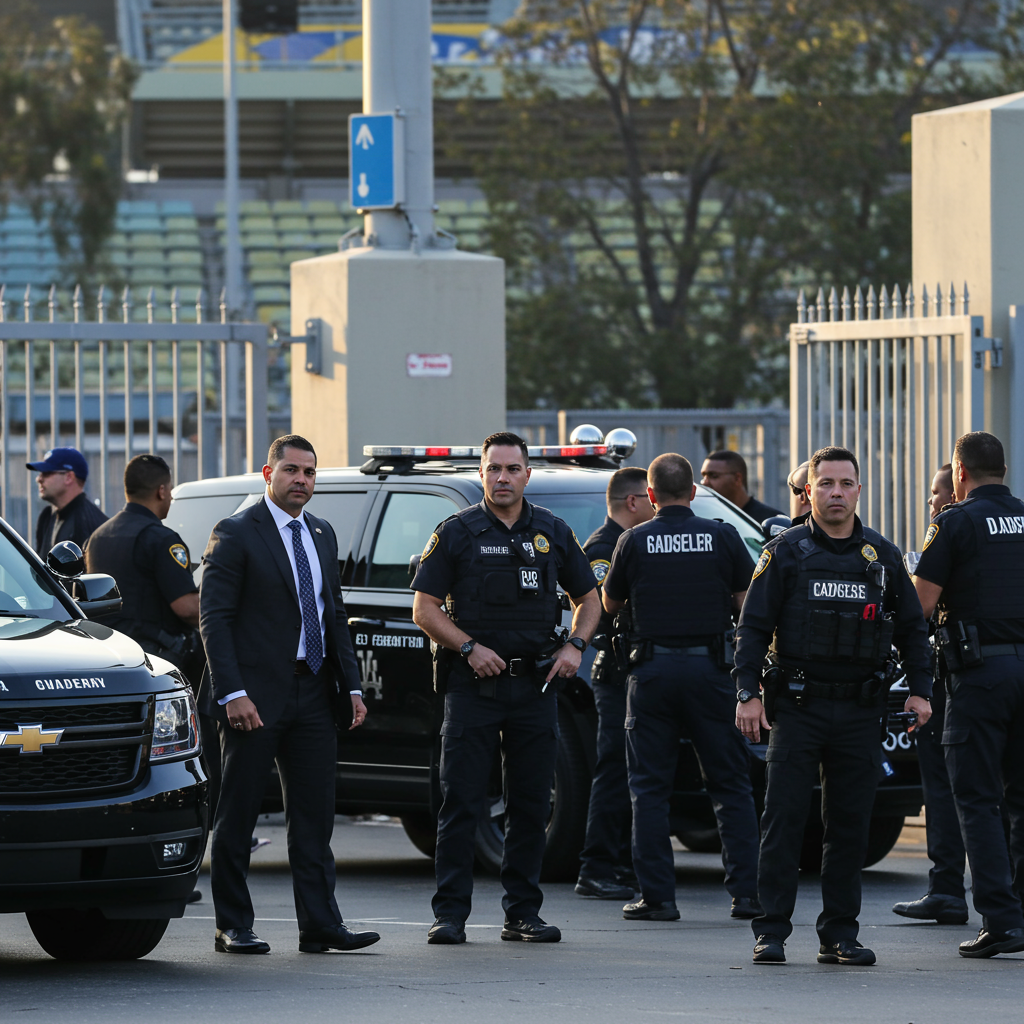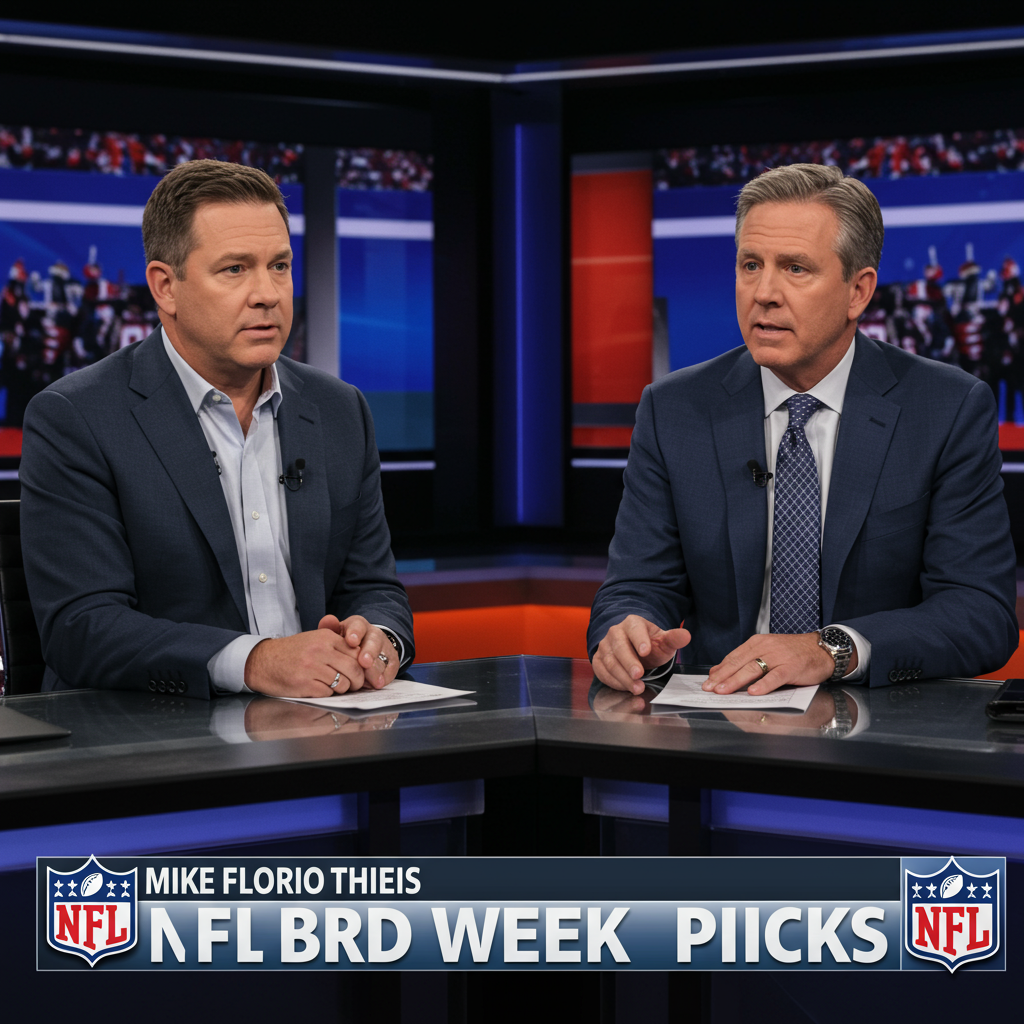Federal Agents Appear at Dodger Stadium, Team Denies Access to Lots
A tense scene unfolded at Dodger Stadium on a Thursday morning when federal agents arrived near the ballpark’s parking entrances, reportedly seeking access to the vast lots. According to a statement from the Los Angeles Dodgers organization, the agents were denied entry to the grounds.
The incident, which occurred shortly after 10 a.m. PDT, involved a caravan of vans and other vehicles seen near multiple parking entry points. Overhead footage captured by local media showed Department of Homeland Security (DHS) vehicles present.
Conflicting Accounts Emerge
Following the event, both the Dodgers and federal agencies released statements, offering starkly different narratives.
The Dodgers’ statement asserted, “This morning, ICE agents came to Dodger Stadium and requested permission to access the parking lots. They were denied entry to the grounds by the organization.” The team also confirmed that the evening’s scheduled game would proceed as planned.
However, federal agencies presented conflicting information:
ICE (Immigration and Customs Enforcement): In a social media post, ICE directly disputed the Dodgers’ claim, stating, “False. We were never there.”
DHS (Department of Homeland Security) / CBP (Customs and Border Protection): DHS clarified that the agents belonged to U.S. Customs and Border Protection (CBP), not ICE. DHS stated that CBP vehicles were briefly present in the stadium parking lot, but their presence was “unrelated to any operation or enforcement,” emphasizing, “This had nothing to do with the Dodgers.”
Despite the federal denials of intent or even presence (in ICE’s case), agents photographed near the stadium gates while protesters gathered were described as heavily masked, and one reportedly wore a “Border Patrol Federal Agent” patch on his tactical vest. Notably, CBP and ICE are both law enforcement agencies operating under the umbrella of DHS. Some sources close to the situation reportedly corroborated the Dodgers’ account that agents did attempt to enter the parking lot and were denied.
Scene at the Ballpark
As news and images of the federal presence circulated, a small group of protesters arrived at Gate E, gathering and chanting at the agents outside the gates. Local law enforcement, specifically Los Angeles Police Department (LAPD) officers, were also dispatched to the scene. Reports indicate the LAPD formed a skirmish line to separate protesters from the area where agents were gathered. A city council member was also involved, highlighting the distinction between public and private property and advocating for the agents to be moved off the team’s private land.
An LAPD source reportedly denied receiving a request from the Dodgers to remove federal agents, but confirmed the Dodgers did ask police to intervene after the protesters arrived. However, at least one report citing a video suggested an LAPD officer told protesters the Dodgers were “kicking [DHS agents] out,” implying the team actively sought their departure. By the afternoon, both the agents and the protesters had dispersed from the area.
Context: Immigration Enforcement and Team Stance
This incident occurred amidst a period of intensified immigration enforcement activity in Los Angeles under the Trump administration, characterized by aggressive raids in the Southland that had sparked widespread protests. Los Angeles is home to a large Latino population, making the Dodgers’ connection to this community significant.
The timing of the federal agents’ appearance was particularly notable. It came less than 24 hours before the Dodgers organization was reportedly set to announce plans to provide assistance to immigrant communities impacted by the recent events in Los Angeles.
The Dodgers had faced prior pressure from fans and critics for their perceived silence regarding the ongoing ICE raids. This pressure was amplified by a recent controversy involving singer Nezza, who performed a Spanish version of the national anthem at Dodger Stadium despite reportedly being asked by a team employee to sing in English.
While the organization’s public stance had been cautious, some individuals associated with the team had spoken out. Veteran utilityman Kiké Hernández released a statement supporting Latinos affected by profiling and arrests, stating his sadness and anger over the “violation, profiling, abuse and ripping apart of our community.” Former player and broadcaster Adrián González reportedly called the raids “illegal” and “unconstitutional,” and iconic former Spanish-language broadcaster Jaime Jarrín shared his perspective as an immigrant, calling immigration “the American story.”
The appearance of federal agents near Dodger Stadium, the team’s denial of access, and the conflicting accounts from government agencies highlight the tension between federal immigration enforcement actions and their impact on local communities, even intersecting with major cultural institutions like sports teams navigating complex social and political landscapes.



